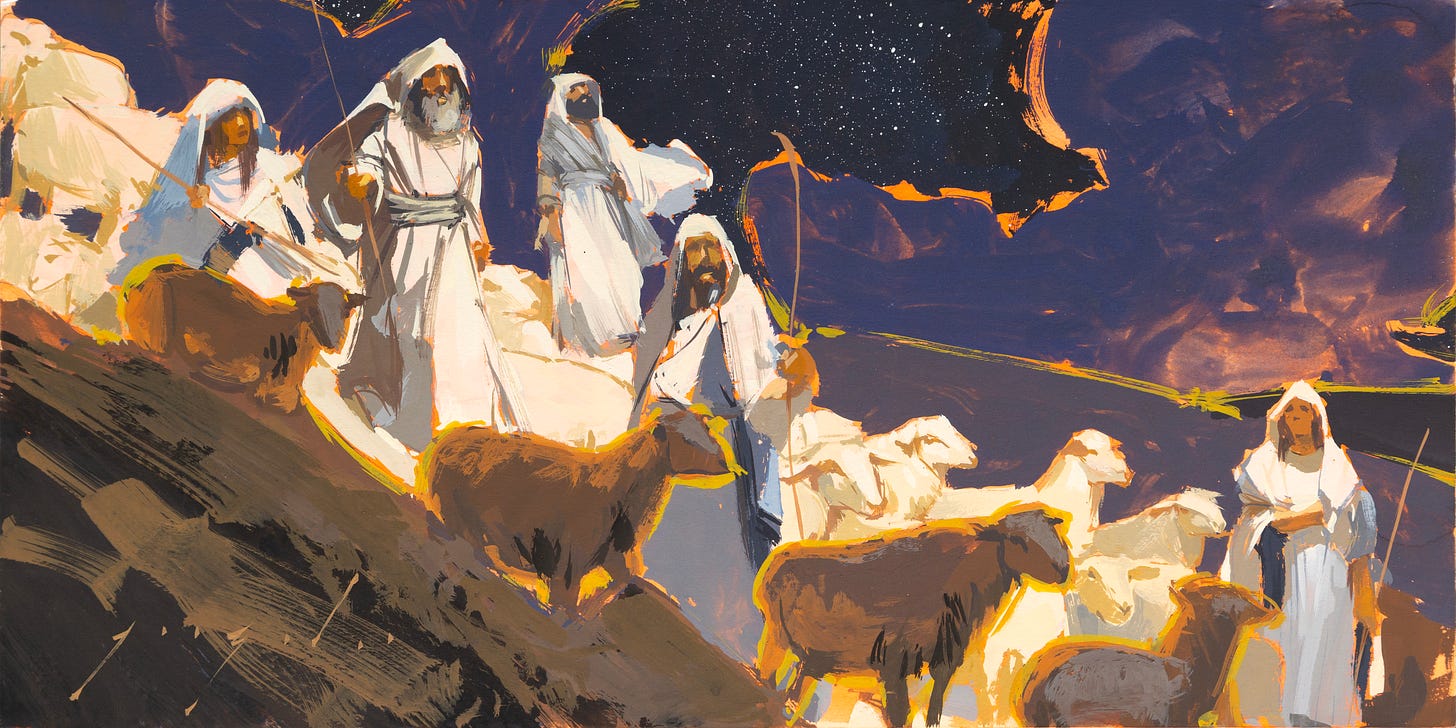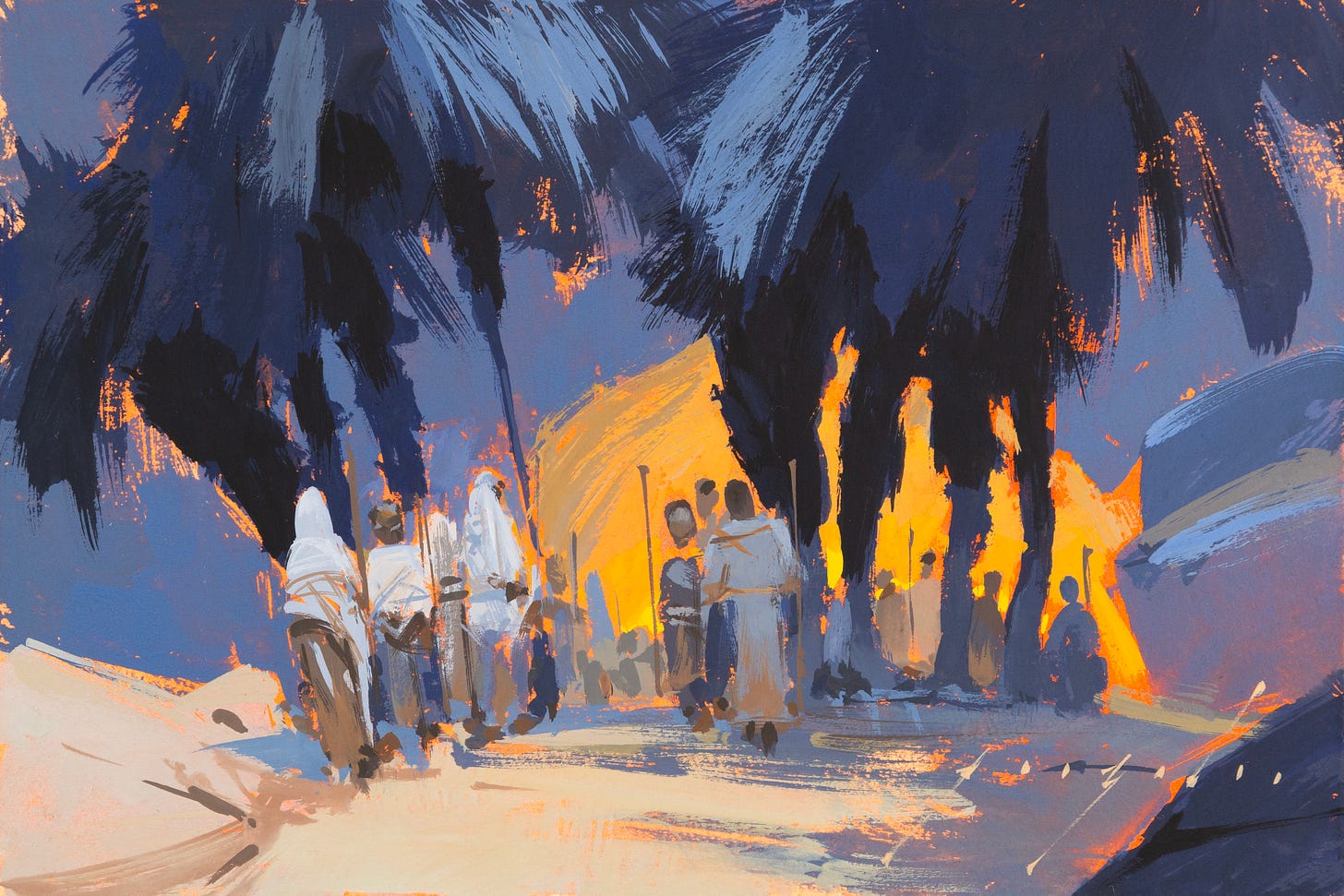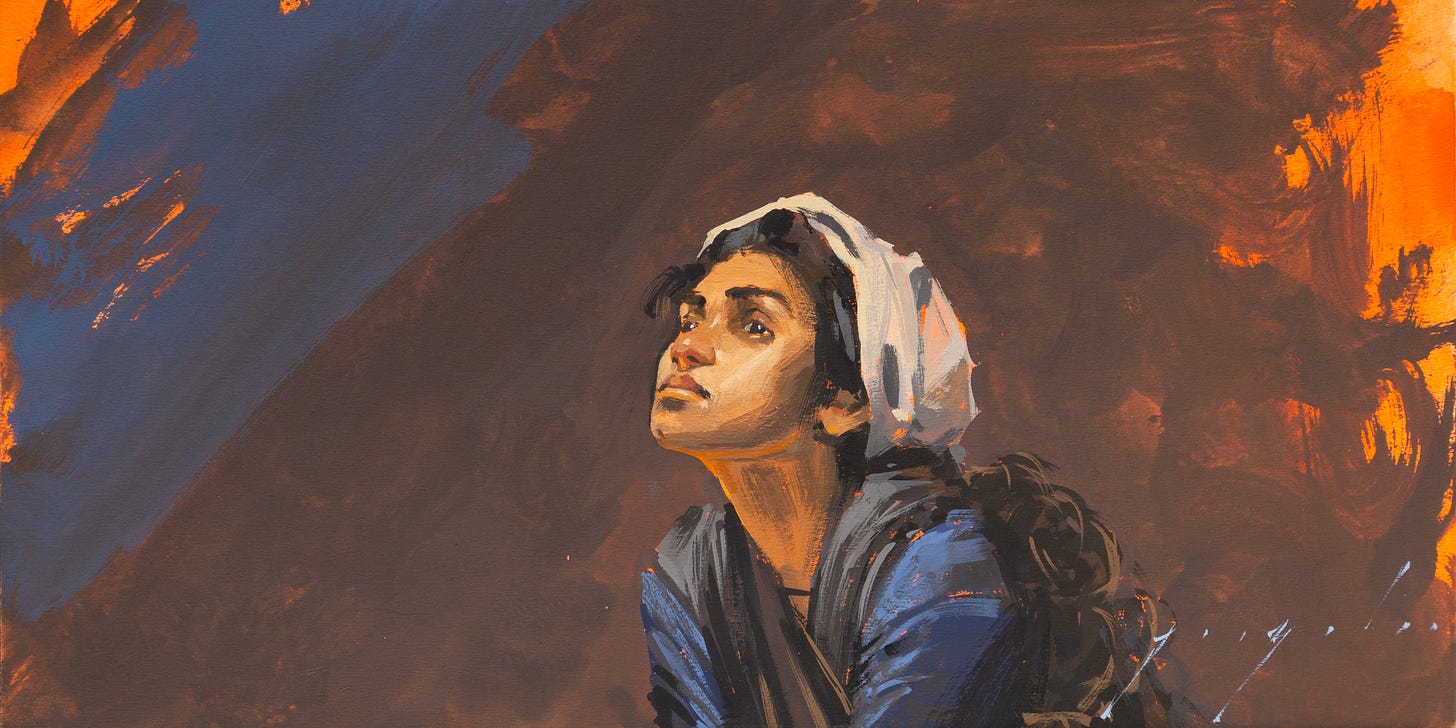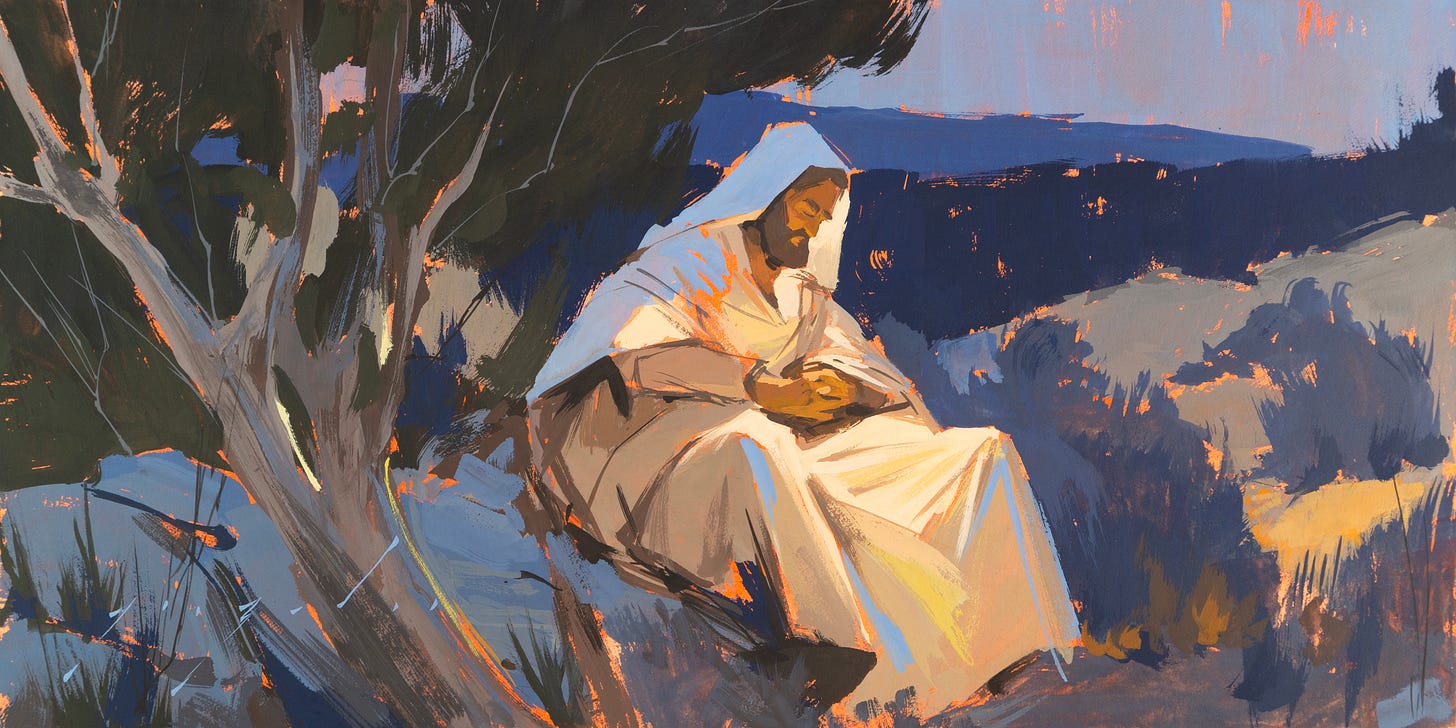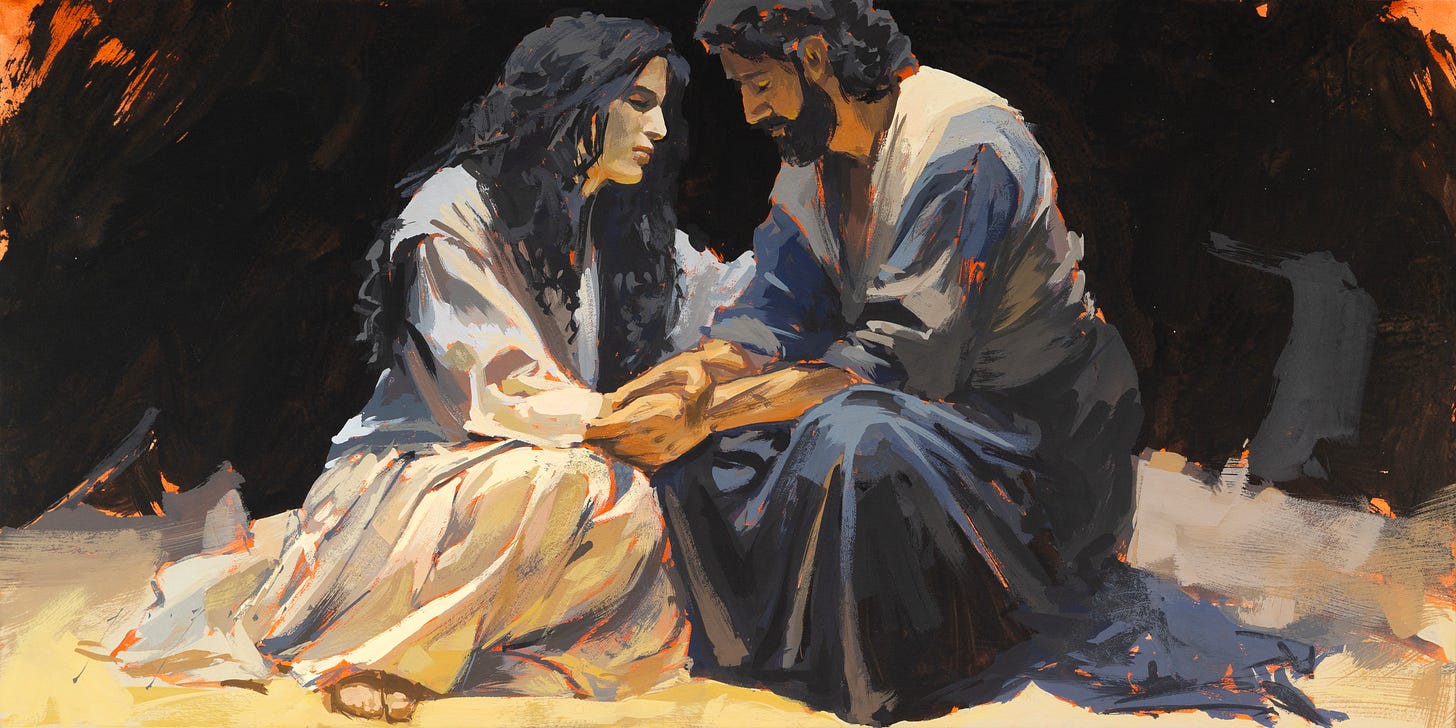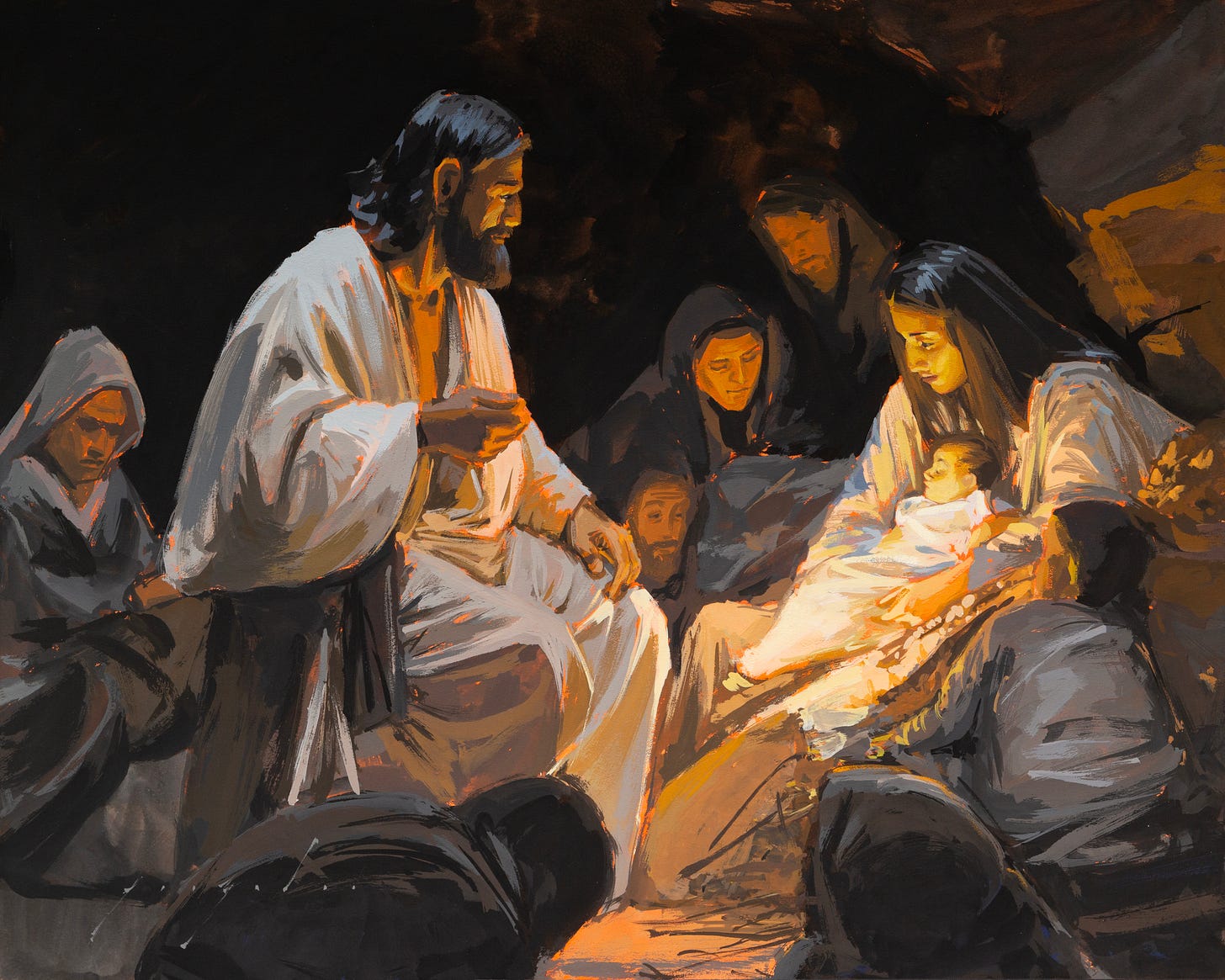O, Great Mystery
A Christmas Eve Meditation
Last Christmas, writing for the magazine, I tried to imagine what the experience of the first Christmas night must have been like for Mary, the mother of Jesus. As a doctor, I have watched and participated in dozens of births. Still, as a man, some elements of Mary’s experience would always be unknowable to me.
This year, I am considering a perspective that is much closer to home. What was Jesus’ birth like for Joseph? As a father myself, I can’t help but wonder what that night must have been like in his place. Given customs current at the time of Jesus's birth, it is likely that Joseph did not witness the birth itself but probably waited, as it were, in the next room. He found out Mary was expecting before they were even wed. We know that Joseph wrestled with the decision of whether to break off his betrothal to Mary. We suppose that he worried what those who knew and loved him might think (Matthew 1:19). But then, as best we can gather, Joseph had his heart changed, beginning with the angelic visitation announcing the identity of the baby to come. As I contemplate the story of Jesus’ birth, I wonder how the events of that first Christmas night might have further changed Joseph’s heart.
And so, on this Christmas Eve, I invite you to imagine with me what the scene of the Savior's birth might have been like for his surrogate father, who found himself in a role he never anticipated, freighted with a task he could not have imagined.
The scene is a sparsely furnished cave outside a small town some six miles South of Jerusalem. A crude door guards the entrance to the cave. Animals lounge around the space’s periphery. Behind a hastily tacked-up curtain, a very young woman is drawn out in the pain of labor, a midwife standing at her knee, preparing to deliver the child that is about to be born. Just beyond the curtain, a figure, a young man with calloused hands, paces from side to side of the cave. He glances warily toward the curtain every few moments, waiting for news from the other side.
I can imagine that when Mary and Joseph first arrived at the Manger, Joseph's first sensation would have been exhaustion and relief. After all, they had spent much of the night seeking shelter.
I wonder, though, if Joseph didn’t soon feel a current of anger and frustration. This couldn’t have been the scene he once imagined. He would have anticipated a traditional life with Mary, raising their own children, at home in their own community, with a family like those of their friends. Yes, an angel had come in a dream. And, yes, Joseph wanted to believe the angel’s tidings. Yet the child would not be his own—to say nothing of the wayward glances he was sure would come.
But now, in my mind's eye, Joseph's thoughts and mood begin to turn. Perhaps the shift comes in response to that new star, or with the memory of that angelic voice, or simply because a new found glory is about to enter the world.
But whatever the cause, I imagine that Joseph's worries now turned toward a deep and abiding sense of inadequacy—a dawning recognition that he, Joseph, could never measure up as a father. After all, is this not the inescapable fear of every father on the precipice of parenthood?
What’s more, the angel had said that this boy would save the world from sin. But what could Joseph contribute to such a cause? What did Joseph, the poor carpenter, feel as he bore the weight of raising God’s own son? Where just a moment before anger and enmity may have consumed him, as he felt the weight of the task and his own inadequacy—what emotions now coursed through his veins?
Helplessness?
Hopelessness?
Something like despair?
Then, from just beyond the curtain, Joseph hears Mary’s focused groan—as if she is channeling the entire force of life on this one effort.
Next, silence envelops them all as the air shimmers with anticipation and quakes with a holy fear.
And, finally, rending the night sky like lightning comes the ragged, fervent, and unselfconscious wail of a newborn baby.
Joseph’s heart clenches. For months, as Joseph had watched Mary’s belly and breasts grow heavy, he had feared this moment. Trembling his way through sleepless nights, he had wondered if the baby would feel alien—afraid of parenting a child who might seem inescapably, unalterably, and entirely not his own.
Suddenly, the fluttering curtain catches Joseph's eye! Through the parted veil, he glimpses Mary, now resting, and sees the midwife approaching, holding the swaddled child. Before Joseph can fully gather himself or prepare to react, she places this squirming bundle in his arms.
Despite himself, Joseph gazes down into the baby's eyes and—as suddenly as the new star had appeared in the night sky—he finds himself transformed. For the rest of his life, he will struggle to understand or articulate what happens in that moment. He is still in a cave with scattered hay, surrounded by unkempt shepherds—a man of no account, in a cave of no significance, outside a city of no reputation, with little money and nothing at all to recommend him.
And yet, in that moment, holding that baby, feeling its breathing and gazing into its eyes, Joseph knows as unquestioningly as he knows he lives that some tectonic cosmic plate has shifted.
What was wrong is made right.
What was broken will be mended.
Those who suffer will find succor.
There, Joseph finds love welling up inside of him–as broad, and deep, and bright as a summer sky–and though the being in his arms is every bit a baby, Joseph nonetheless knows the baby is God and that this light of love incarnate will never be darkened.
In that instant, all the shame, trepidation, and anger melt away like hoary frost fleeing the rising sun. In that moment, the man Joseph was is forever replaced by the man he has become. Still Joseph, yet entirely new—transformed, in a moment, by the love of Jesus.
Joseph rocks the boy gently, cradling in his arms this baby, Emmanuel, God with us.
Tyler Johnson is a Wayfare Associate Editor and Stanford medical oncologist. He podcasts at The Doctor’s Art.
Art by Brandon Gonzales. These pieces and others can be viewed at The Compass Gallery from now until February 1, 2025.



